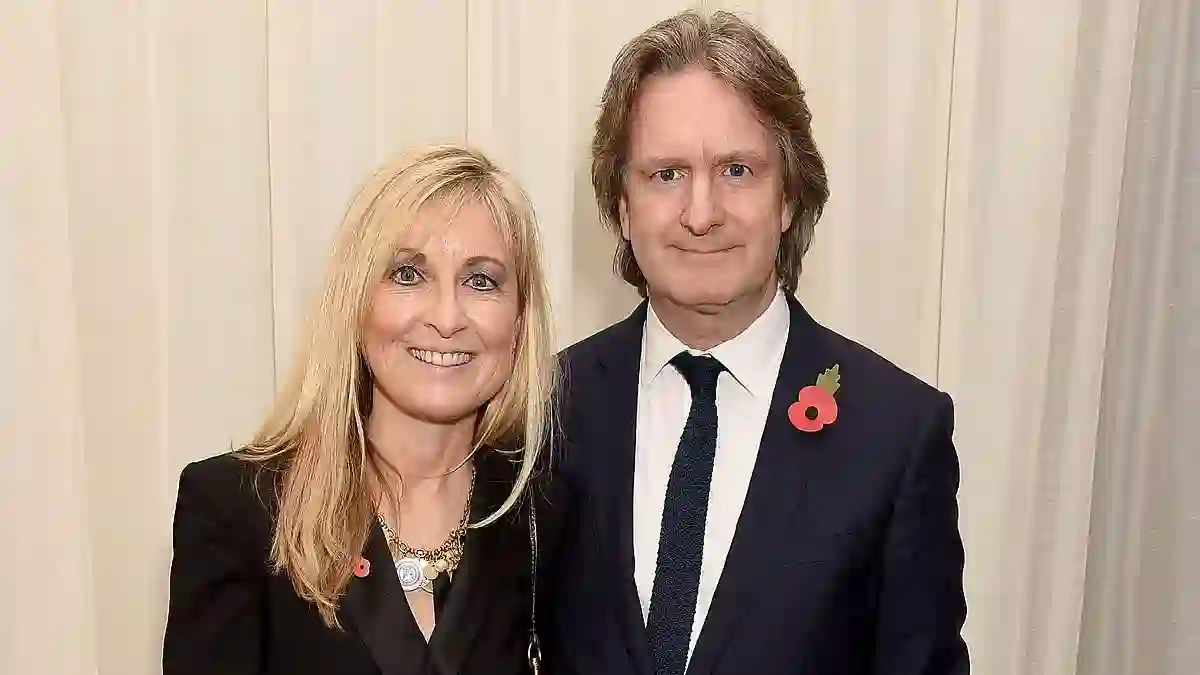When someone you love is diagnosed with Alzheimer’s, life as you know it shifts.
For TV presenter Fiona Phillips and her husband Martin Frizell, that moment came in 2022.
But it wasn’t just the heartbreak of her diagnosis they had to process—it was also the terrifying question of whether their sons, Nathaniel and Mackenzie, might be at risk too.
Facing the Genetic Question Head-On
Fiona was just 61 when doctors confirmed she had Alzheimer’s, a progressive brain condition that slowly chips away at memory and function.
One of the first thoughts that haunted Fiona and Martin was whether this cruel illness could be passed on to their children.
In his deeply personal contribution to Fiona’s upcoming memoir, Remember When: My Life With Alzheimer’s, Martin shared how they didn’t waste time getting answers.
They spoke to Fiona’s consultant about her family history and opted for a genetic test.
If Fiona had carried the Alzheimer’s gene, their sons might’ve faced the same fate—or even needed to consider IVF to avoid passing it to their own kids.
Thankfully, the test came back negative. The relief was immense.
No inherited gene meant the boys wouldn’t be at genetic risk.
Still, the doctor mentioned something that puzzled Martin—Fiona was predisposed to the illness.
That raised more questions than answers at first, but the takeaway was clear: Fiona’s case wasn’t hereditary in the usual sense.
Breaking the News to Their Sons
Once they had a grip on the medical facts, it was time to talk to their boys.
But by that point, Fiona was becoming more withdrawn.
She’d already been to a string of hospital appointments, and her sons sensed something wasn’t right.
Martin made a point of easing them into the truth over time.
So when he finally said the dreaded word—Alzheimer’s—they weren’t blindsided, even though the reality was heartbreaking.
“They were devastated for their mum,” he recalled.
But Fiona herself wasn’t interested in dwelling on the diagnosis.
She shrugged it off and quickly changed the subject—a response that somehow made the moment even more emotional.
A Love Story Tested by Illness
Fiona and Martin’s love story began in the GMTV newsroom, where she worked as a presenter and he was chief correspondent.
After just four weeks of dating, he proposed.
They jetted off to Las Vegas in 1997 and tied the knot.
But behind closed doors, long before the diagnosis, cracks had started to show.
Fiona wrote that their marriage was under increasing strain.
Martin often told her she seemed distant. “You’ve zoned out of our family and our marriage,” he would say.
She didn’t see it at the time. “Don’t be ridiculous!” she’d snap.
But looking back, she admits he was right—she just didn’t have the energy anymore.
One night, Martin told her he was thinking about moving out.
Fiona was stunned, thinking she was just tired.
But now, she realizes those early signs may have been the disease already taking hold.
A Slow and Painful Goodbye
Today, the couple and their sons are living with what Martin heartbreakingly calls “a slow goodbye.”
Fiona is still here—but bit by bit, the woman they knew is slipping away. “It takes everything,” he wrote.
“Even the most glamorous, glittering star—like Fiona—will be wiped away.”
Martin has since stepped down from his high-profile role as editor of This Morning, choosing instead to be present for Fiona full-time.
And it’s not just emotional support she needs—it’s everything.
From brushing her teeth to helping her dress, Martin is now her round-the-clock caregiver.
Day-to-Day Life: From TV Career to Full-Time Care
Martin detailed just how much their routine has changed.
Fiona can physically get dressed or shower, but the sequence of what to do—and how to do it—is gone.
She might forget to rinse shampoo out or not know which toothbrush is hers.
She also grows attached to certain pieces of clothing and wears them on repeat, meaning Martin now lays out her outfits each morning.
He’s learned to tread gently when she resists help, especially when it comes to hygiene.
The last thing she needs is an infection, he explains, and so he navigates her frustration with patience and love.
Living with Alzheimer’s: The Emotional Toll
For Martin, the hardest part isn’t the physical workload—it’s the emotional weight.
“There were times I felt drained, physically and emotionally,” he confesses.
Their sons feel it too. Together, they are mourning someone who is still alive—a condition often called “living grief.”
Despite it all, Martin remains fiercely devoted.
His care now extends to every detail of Fiona’s day, and his priority is clear: keep her safe, supported, and as comfortable as possible.
A Memoir That Pulls No Punches
Fiona’s memoir, Remember When: My Life With Alzheimer’s, comes out on July 17 and promises to shed even more light on their journey—from the earliest signs of trouble to the quiet strength holding their family together.
What Is Alzheimer’s?
Alzheimer’s is a degenerative brain disease caused by abnormal protein build-up that kills nerve cells and shrinks the brain.
It affects over 1 million people in the UK and more than 5 million in the US, making it one of the leading causes of death.
Early Symptoms:
-
Short-term memory loss
-
Disorientation
-
Mood swings
-
Difficulty managing money or using a phone
Later Symptoms:
-
Severe memory loss
-
Aggression from confusion
-
Trouble eating or walking
-
Total dependence on care
There is currently no cure, and patients typically live 5 to 7 years after diagnosis, though some may live up to 15.
Holding on to Hope
Even as Alzheimer’s continues to change everything, Fiona and Martin’s story is ultimately one of deep love, loyalty, and courage.
They’re facing the unimaginable with honesty—and sharing their journey so others might feel less alone.



